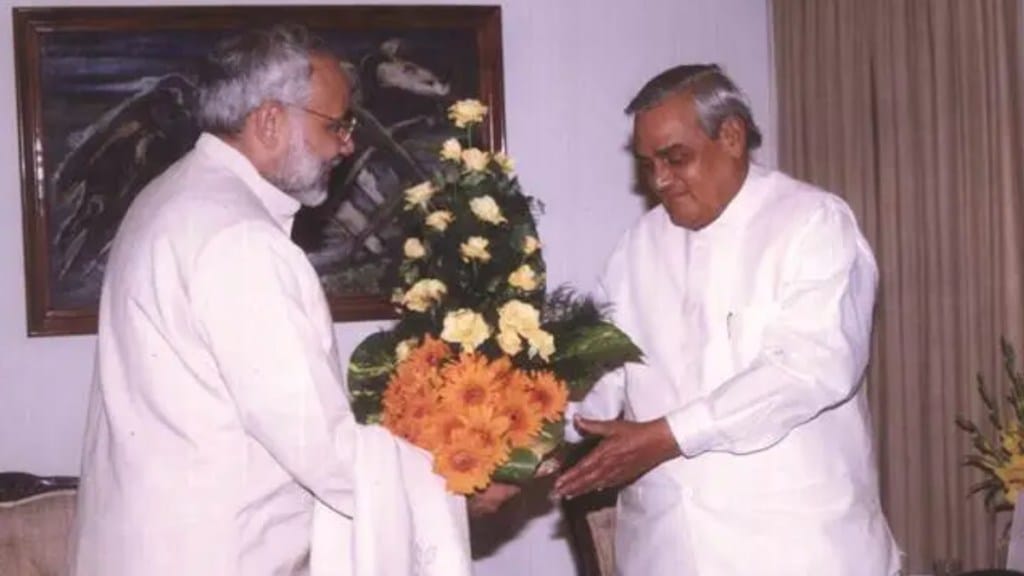On the occasion of Atal Bihari Vajpayee’s 100th birth anniversary, Prime Minister Narendra Modi reflected on the profound impact of the former Prime Minister, calling him the architect of India’s transition into the 21st century. In an article published in various newspapers, PM Modi reflected on Vajpayee’s long parliamentary career where he mentioned that despite spending much of it in the opposition, Vajpayee never harbored any bitterness, even when the Congress party resorted to extreme measures, labeling him a “traitor.” Modi also praised Vajpayee for leading transformative economic reforms that laid the foundation for India’s economic growth, moving away from policies that promoted cronyism and stagnation.
The PM went on to highlight Vajpayee’s legacy in sectors like technology, communications, and infrastructure. He said that under his leadership, the NDA government made significant strides in making technology accessible to all citizens. The Golden Quadrilateral project, which connected the nation from north to south and east to west, is a lasting testament to his foresight. Additionally, his push for the Pradhan Mantri Gram Sadak Yojana and Delhi Metro demonstrated his commitment to modernizing India’s infrastructure.
PM Modi also acknowledged Vajpayee’s pivotal role in strengthening India’s unity and integration. He emphasized that initiatives like Sarva Shiksha Abhiyan were vital in making modern education accessible to the nation’s poor and marginalized communities.
Vajpayee’s decision to conduct nuclear tests in 1998 was a momentous act of leadership, according to Modi. He said that while the world reacted with anger, Vajpayee stood firm, conducting another series of tests shortly after. This move marked a decisive shift in India’s foreign policy, asserting the nation’s sovereignty despite international pressure. Modi noted that even in the face of global sanctions, Vajpayee’s government upheld India’s right to self-defense and continued to champion world peace.
As the leader of the NDA, he reshaped Indian coalitions, building a platform for development and national progress. Modi reflected on Vajpayee’s parliamentary skill, noting how his words could challenge even the Congress Party’s dominance. Vajpayee’s principled approach to politics was evident when he chose to resign in 1996 rather than engage in opportunistic political maneuvers, demonstrating his commitment to integrity.
The PM also highlighted Vajpayee’s deep respect for India’s Constitution, mentioning how the martyrdom of Syama Prasad Mookerjee had a lasting impact on him and shaped his political journey. Vajpayee was also instrumental in the anti-Emergency movement and played a key role in merging his party into the Janata Party to protect the Constitution.
As External Affairs Minister, Vajpayee made history by becoming the first Indian leader to speak in Hindi at the United Nations, further reflecting his pride in India’s culture. Modi praised his mentor’s love for literature and expression, which enriched his personality and inspired countless people, including BJP members like himself.
PM Modi concluded by urging the nation to rededicate itself to realizing Vajpayee’s ideals and vision for India, highlighting that Vajpayee always prioritized ideology over power and believed in an alternative path to progress for the nation.

